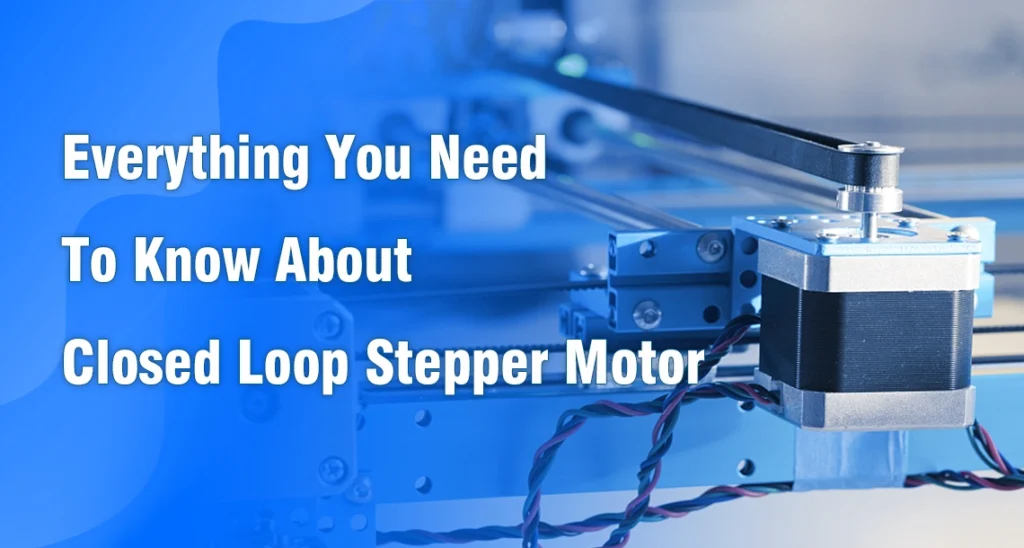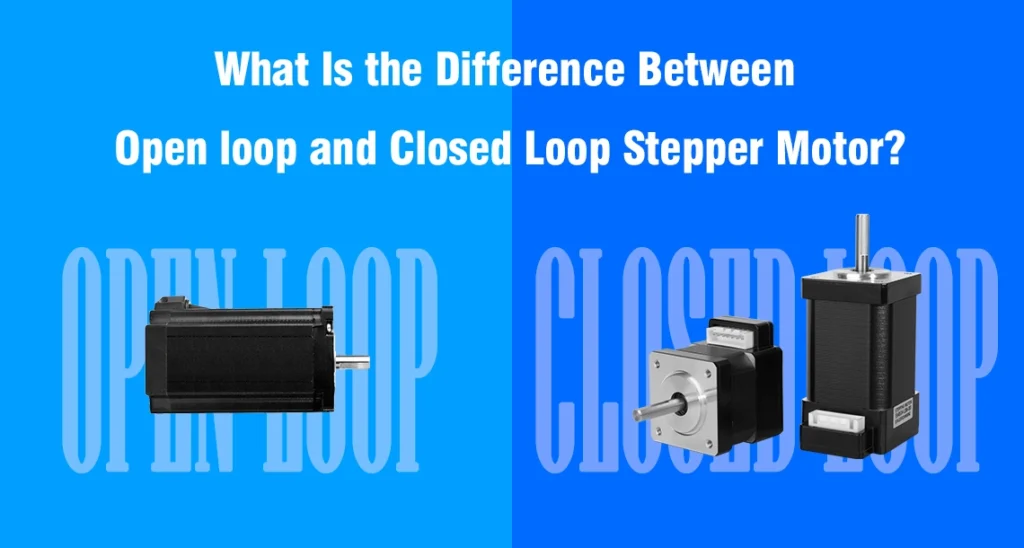In the realm of precision control, closed loop stepper motors emerge as game-changers, offering unparalleled accuracy and reliability. Whether in manufacturing, robotics, or aerospace, their ability to execute precise movements with utmost consistency makes them indispensable. Let’s delve deeper into the realm of closed loop stepper motors to understand why they are the epitome of precision control.
Understanding Closed Loop Stepper Motors
closed loop stepper motors represent a significant advancement over traditional open-loop systems. Unlike their counterparts, closed loop motors incorporate feedback mechanisms, enabling them to monitor and adjust performance in real-time. This feedback loop ensures that the motor precisely executes commands, correcting any deviations from the desired position or speed.
The Mechanism Behind Precision Control
At the heart of closed loop stepper motors lies a sophisticated control mechanism. These motors utilize position feedback devices such as encoders or resolvers to constantly monitor the rotor’s actual position. By comparing this feedback with the desired position, the control system calculates any discrepancies and issues corrective signals to the motor, ensuring precise alignment.

Advantages of Closed Loop Systems
The adoption of closed loop stepper motors brings forth a myriad of advantages. Firstly, they offer enhanced accuracy, eliminating the inherent errors associated with open-loop systems. Moreover, their ability to self-correct enhances reliability, making them ideal for critical applications where precision is paramount. Additionally, closed loop systems exhibit improved torque characteristics, further augmenting their suitability for demanding tasks.
- Unparalleled Precision
One of the primary advantages of closed loop stepper motors is their exceptional precision. By incorporating feedback mechanisms, these motors can achieve sub-micron positioning accuracy, making them ideal for applications where precision is paramount, such as CNC machining, 3D printing, and semiconductor manufacturing.
- Enhanced Performance
Closed loop stepper motors offer superior performance compared to their open loop counterparts. The feedback loop enables faster response times and smoother operation, resulting in reduced settling time and improved dynamic performance. This enhanced responsiveness allows for higher throughput and improved productivity in automated systems.
- Increased Reliability
Reliability is another hallmark of closed loop stepper motors. The feedback mechanism allows the controller to detect and compensate for errors in real-time, minimizing the risk of missed steps or positional inaccuracies. This inherent reliability makes closed loop stepper motors suitable for mission-critical applications where downtime is not an option.
- Versatility and Flexibility
Despite their advanced capabilities, closed loop stepper motors remain highly versatile and flexible. They can be easily integrated into existing systems without the need for extensive modifications, making them a cost-effective solution for upgrading or retrofitting equipment. Additionally, their compatibility with various motion control algorithms and communication protocols enhances their adaptability to diverse application requirements.
Applications in Industries
The versatility of closed loop stepper motors finds applications across diverse industries. From CNC machining and 3D printing to medical devices and laboratory automation, these motors play a pivotal role in achieving precise control. Their seamless integration with various control systems makes them indispensable in applications requiring intricate movements and precise positioning.
Factors Influencing Performance
Several factors influence the performance of closed loop stepper motors. These include motor design, feedback resolution, control algorithms, and environmental conditions. Optimal performance necessitates careful consideration of these factors to ensure consistent and accurate operation, especially in dynamic environments.

Comparison with Other Control Systems
Compared to alternative control systems such as servo motors or open-loop steppers, closed loop stepper motors offer distinct advantages in precision control. While servo motors excel in high-speed applications, closed loop steppers strike a balance between precision and cost-effectiveness. On the other hand, open-loop steppers lack the feedback mechanism necessary for precise control, making them unsuitable for applications requiring accuracy.
Overcoming Challenges
Despite their myriad benefits, closed loop stepper motors face challenges such as resonance, tuning complexities, and cost considerations. However, advancements in control algorithms and hardware design have addressed many of these challenges, paving the way for widespread adoption. Additionally, ongoing research aims to further optimize closed loop systems for enhanced performance and affordability.
Future Trends and Innovations
Looking ahead, the future of closed loop stepper motors appears promising, with ongoing research and development driving innovation. Emerging trends such as miniaturization, integrated electronics, and advanced materials hold the potential to revolutionize precision control across industries. As these technologies mature, closed loop stepper motors will continue to redefine the boundaries of precision and reliability.
Conclusion
In conclusion, closed loop stepper motors represent the pinnacle of precision control, offering unmatched accuracy, reliability, and versatility. Their seamless integration with various industries and applications underscores their significance in modern automation and robotics. As technology advances and innovations continue to emerge, closed loop stepper motors will remain at the forefront of precision control, shaping the future of automation and beyond.
FAQs
Q1: What makes closed loop stepper motors ideal for precise control?
A1: closed loop stepper motors incorporate feedback mechanisms to monitor and adjust performance in real-time, ensuring precise alignment and movement.
Q2: How do closed loop stepper motors compare to servo motors?
A2: While servo motors excel in high-speed applications, closed loop stepper motors offer a balance between precision and cost-effectiveness, making them ideal for a wide range of applications.
Q3: What factors influence the performance of closed loop stepper motors?
A3: Factors such as motor design, feedback resolution, control algorithms, and environmental conditions can significantly impact the performance of closed loop stepper motors.
Q4: Are closed loop stepper motors suitable for dynamic environments?
A4: Yes, closed loop stepper motors are designed to adapt to dynamic environments, thanks to their ability to monitor and adjust performance in real-time.
Q5: Can closed loop stepper motors overcome challenges such as resonance and tuning complexities?
A5: Yes, advancements in control algorithms and hardware design have addressed many of the challenges associated with closed loop stepper motors, enhancing their performance and reliability.
Q6: What does the future hold for closed loop stepper motors?
A6: The future of closed loop stepper motors looks promising, with ongoing research driving innovations such as miniaturization, integrated electronics, and advanced materials, further enhancing their precision and reliability.



